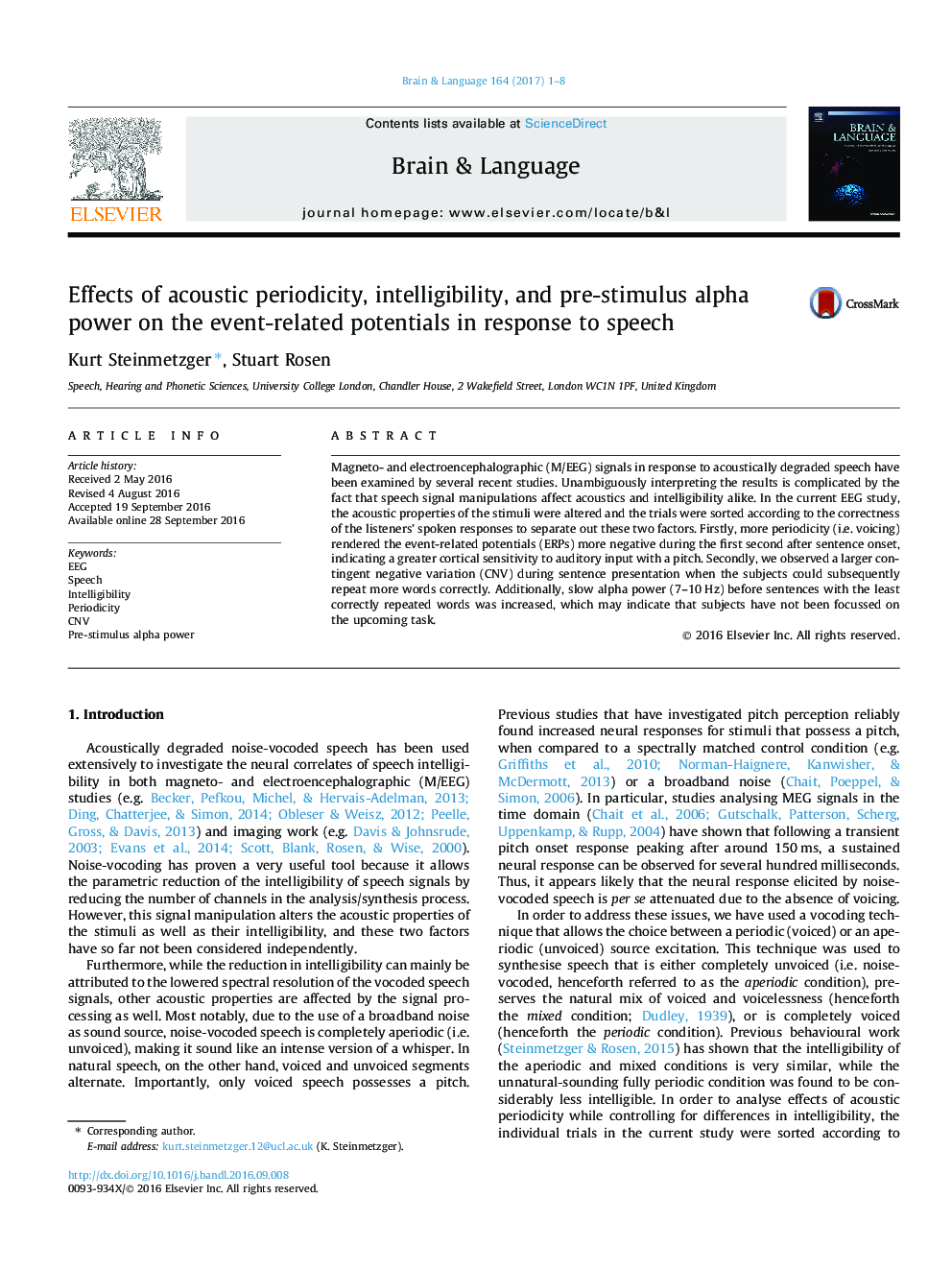| Article ID | Journal | Published Year | Pages | File Type |
|---|---|---|---|---|
| 5041292 | Brain and Language | 2017 | 8 Pages |
â¢More acoustic periodicity (voicing) renders ERPs more negative after sentence onset.â¢CNV amplitudes were larger in response to intelligible sentences.â¢Alpha power (7-10 Hz) was increased before unintelligible sentences.
Magneto- and electroencephalographic (M/EEG) signals in response to acoustically degraded speech have been examined by several recent studies. Unambiguously interpreting the results is complicated by the fact that speech signal manipulations affect acoustics and intelligibility alike. In the current EEG study, the acoustic properties of the stimuli were altered and the trials were sorted according to the correctness of the listeners' spoken responses to separate out these two factors. Firstly, more periodicity (i.e. voicing) rendered the event-related potentials (ERPs) more negative during the first second after sentence onset, indicating a greater cortical sensitivity to auditory input with a pitch. Secondly, we observed a larger contingent negative variation (CNV) during sentence presentation when the subjects could subsequently repeat more words correctly. Additionally, slow alpha power (7-10Â Hz) before sentences with the least correctly repeated words was increased, which may indicate that subjects have not been focussed on the upcoming task.
